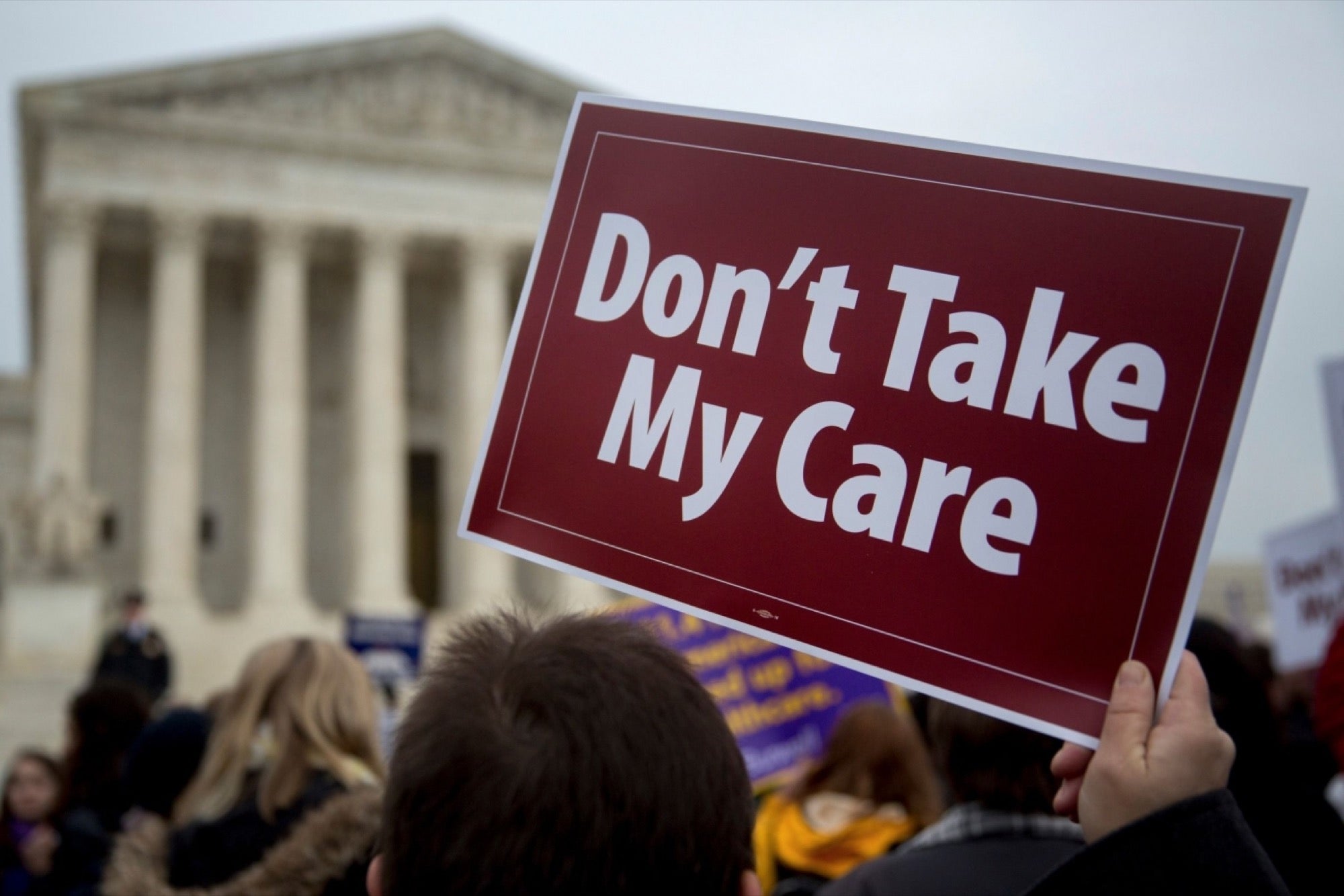Repealing Obamacare Will be a Disaster for Freelancers and Entrepreneurs Who Rely on Them Access to affordable health insurance has sped the growth of the gig economy. Losing that coverage will make freelancing untenable for many.
By Micha Kaufman Edited by Dan Bova
Opinions expressed by Entrepreneur contributors are their own.

The 2016 presidential campaign included lots of discussion about the jobs in factories and mines -- jobs that have be vanishing for decades while almost entirely overlooking the explosion of freelance work that will account for 40 percent of the U.S. workforce by 2020, according to some estimates. That's 60 million Americans.
Inexpensive access to high-speed internet has made freelance work technically feasible but the major change propelling the rapid rise in independent work is the Affordable Care Act and the access to health insurance for all Americans, including those without full time employment, it has created. Insurance that protects against catastrophic expense from illness or injury is a major resource for freelancers and the growing subset of the economy they represent. If President-elect Trump follows through, as it appears he and the Republican majorities in Congress appear intent on doing, he will undermine the the future for tens of millions of Americans and countless employers who have come to rely on them.
Related: Companies in the Crosshairs?
Thanks to the ACA, 2014 was the first year that every American had access to affordable healthcare, but freelancers were signing up as early as 2013. For the first time, everyday Americans were free to leave their jobs to pursue freelance gigs without worrying about losing health insurance coverage. Those who were already freelancing were given a safety net and younger millennial freelancers were able to stay on their parent's health insurance until the age of 26.
Those policy changes have brought real benefits to people's lives. Those who were already freelancing found less expensive alternatives than what they were paying, limiting risk without hampering the ability to provide. Individuals with pre-existing conditions could keep the jobs they had without literally risking their lives. Recent grads with a passion and an idea had the chance to take a professional risk without also taking a bodily one.
And those opportunities have been seized. For example, millennials make up 75 percent of Fiverr's user base. Some estimates put millennials at 40 percent of the full-time independent workforce. It's the U.S.'s largest workforce and a generation of 83 million Americans who value flexibility and setting their own course when it comes to where and how they work. Their attraction to freelancing illustrates how many within our largest working demographic want to pursue their careers, and just how many rely on the ACA.
Related: 3 Things to Know About Buying Health Insurance
Some examples of the positive impact of the ACA hit closer to home for me. Beth Weisendanger, born with muscular dystrophy, is a Fiverr community organizer living in New York. Beth has been a double amputee for almost her entire life but has been able to seize opportunity thanks in some part to her use of prosthetics. Before working at Fiverr, Beth had a "traditional" job in addition to freelance musical work, but without the coverage she had under her parent's plan she would have had no path to pay for prosthetics that cost hundreds of thousands of dollars. Beth was fortunate to have health insurance when she needed it, but there's serious concern about whether that window will stay open.
President-elect Donald Trump and his team pose a threat to the healthcare safety net many freelancers rely on today. On his campaign website, Trump calls the ACA an "incredible economic burden," and unequivocally states that on the first day of his administration, he will call on Congress to repeal it. Though there has been some indication of wiggle room on that point, the message coming forth from Trump Tower has been clear: he hates Obamacare and wants to eliminate it. If you thought that may just be campaign rhetoric, his appointment of Tom Price for health and human services secretary leaves little room for doubt.
It's striking how little thought has been given to how changes or a repeal of the ACA will impact millions of Americans who make up the freelance economy. The ACA has been critical to its growth. A study put out this year by Stride Health came to this stark conclusion: "the Affordable Care Act is working." The study found that 45 percent of freelance workers plan to shop for a new plan in 2017. What's going to happen to these people?
Related: What the Self-Employed Need to Know About Obamacare
What is perhaps most alarming is that even with the exchanges and expanded access, the study found that freelancers are still uninsured at a much higher rate than most Americans. What's going to happen to them once insurance becomes harder to get?
Though Trump may have backtracked some of his most extreme positions on healthcare, Price has not, nor has Speaker of the House Paul Ryan. It's hard to imagine a world without some change and harder still to imagine that whatever change comes won't leave at least some Americans in the healthcare wilderness. This will negatively impact many Americans in the freelance economy; an economy that stands as a real opportunity for many to earn the incomes they need to provide for themselves. Drastic changes will almost certainly result in real people feeling the pain, both from a health and financial standpoint. Trump would be wise to consider the plight of the freelancer, a bloc of (again) 60 million voters.









